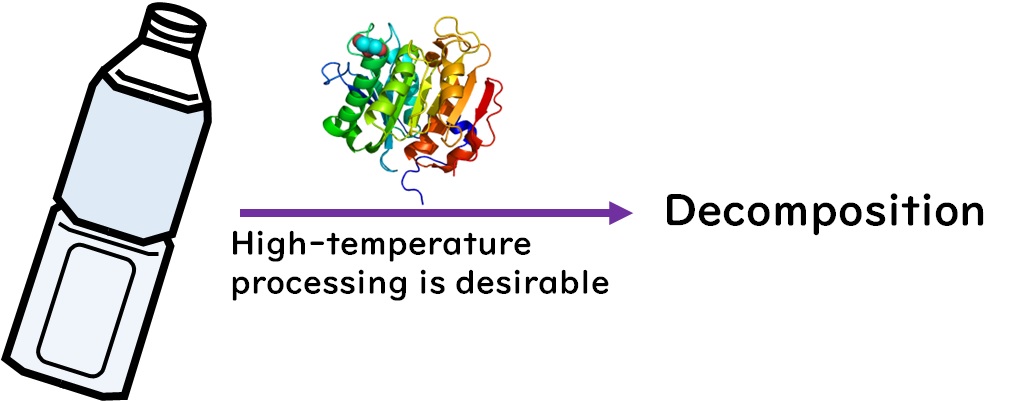Lab. Life Sci. for Extremophiles
Faculty of Human Sciences, Waseda University
Development of enzymes useful for human society, such as plastic-degrading enzymes

Materials used for plastic, especially PET (polyethylene terephthalate), which is used for PET
bottles, are difficult to decompose in nature. However, in recent years, microorganisms and microbial
enzymes that can decompose PET have been found. This means that PET decomposition by enzymes is possible
and may contribute to solving the problem of marine plastic waste. For the efficient decomposition of
PET, even when using enzymes, it is preferable to process it at high temperatures. Therefore, we are
developing a thermostable PET-degrading enzyme that can be used for enzyme decomposition at high
temperatures, using ancestral reconstruction, consensus design, molecular evolution, and rational
design methods.
We are also working on developing enzymes that can be useful in food and beverage manufacturing,
pharmaceutical synthesis, and solving environmental issues.